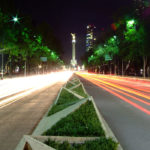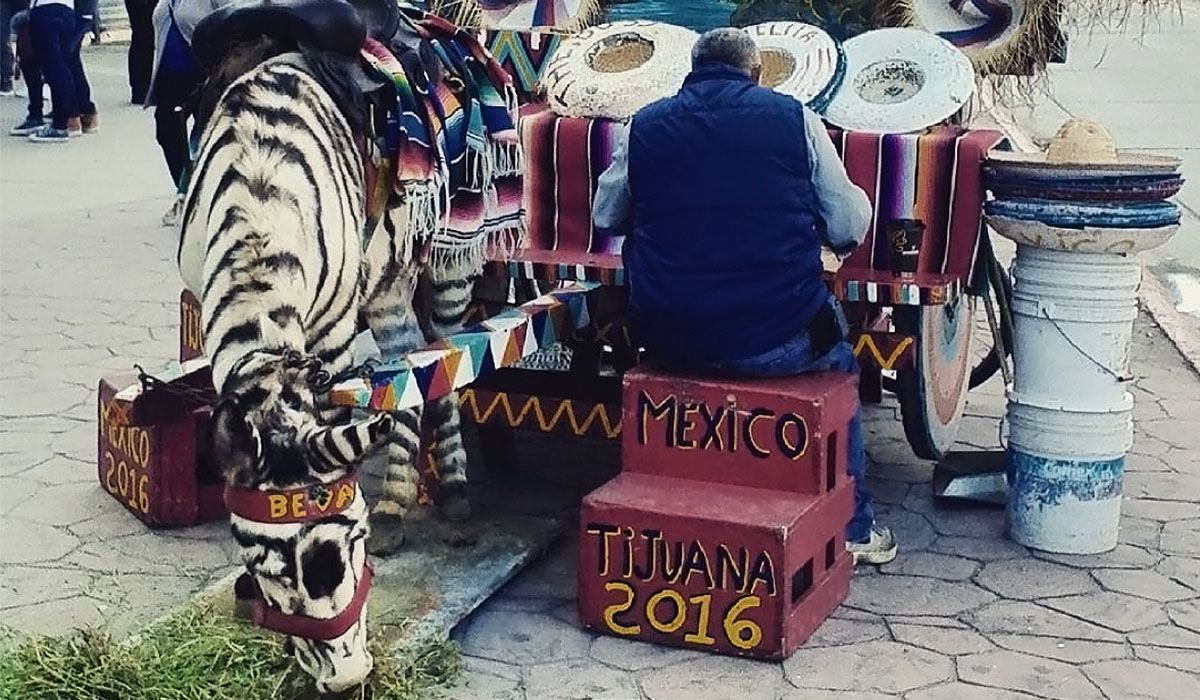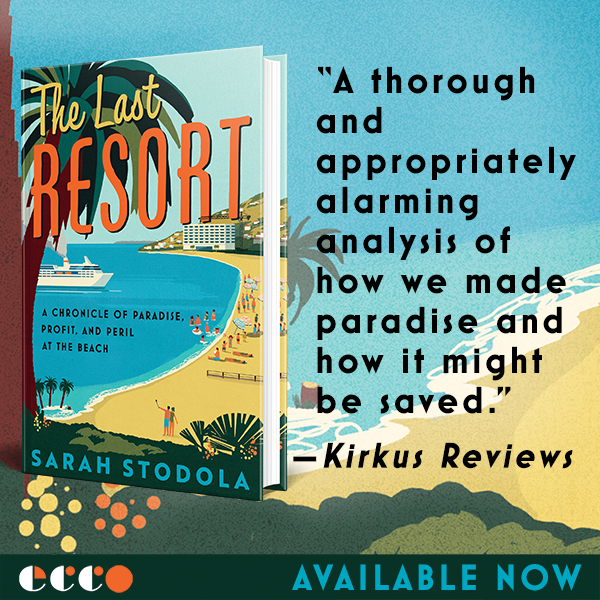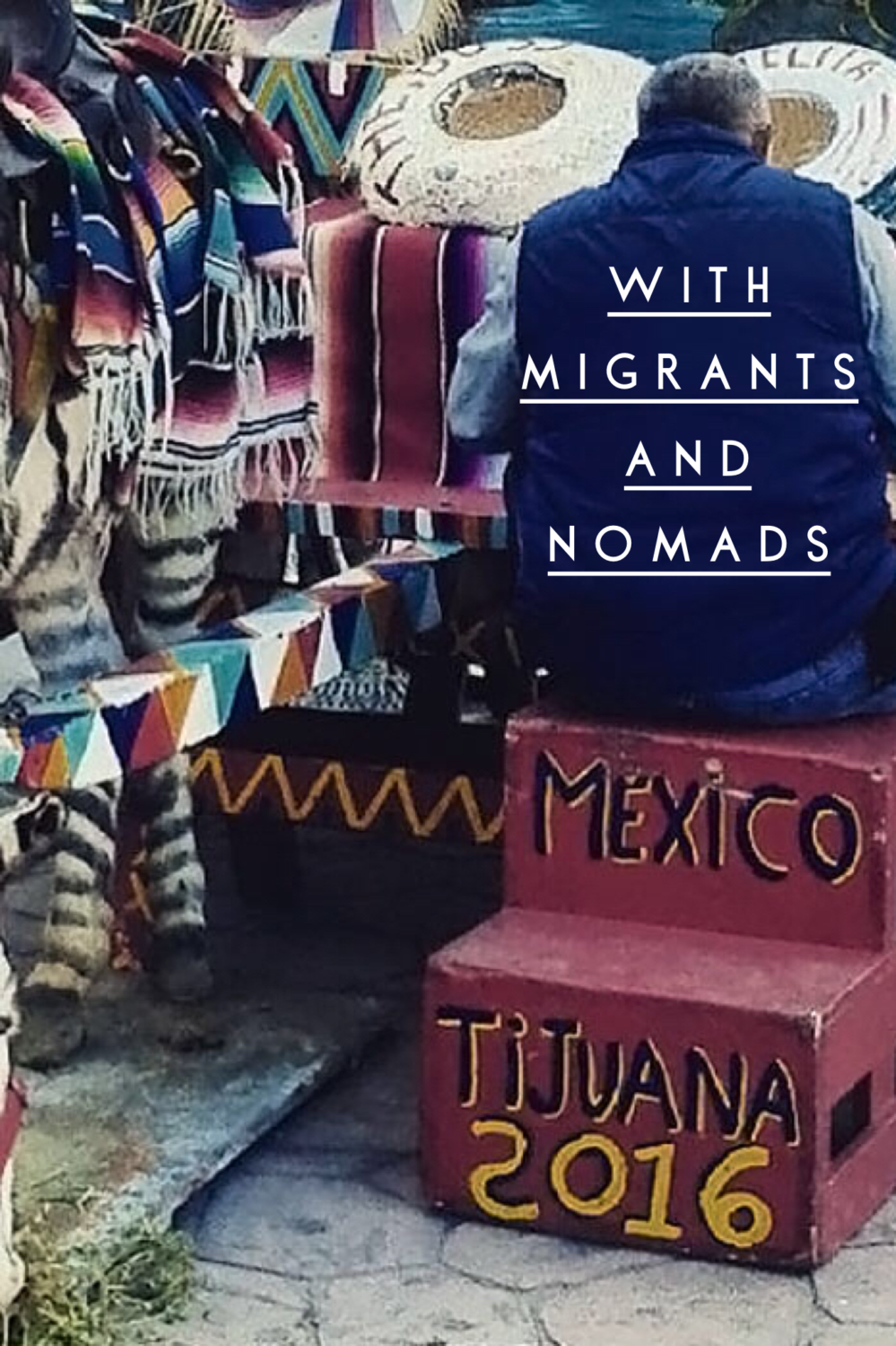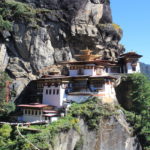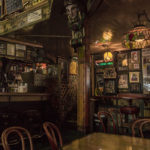My friend drives me to the airport. We pull into the drop-off zone amidst dirty, day old snow and we both get out of the car. I shiver in my thin grey turtleneck as we hug, bid farewell and play out a familiar scene. I thank her profusely for the ride. She marvels at my economy in packing, at the way I am able to fit my life into a bag, at the things I am able to live without and the things that I stubbornly carry. A pouch full of pyrite. Stacks of old notebooks. A jar of cocoa butter.
It’s not the first time I have done this: bought a ticket somewhere and left with a vague plan. The difference this time is that the vague plan is over Christmas, a time when unless work or other extenuating circumstances preclude it, we are supposed to be with our families. I am on my way to Tijuana. Why are you going to Tijuana for Christmas? Everybody asks me. It is hard to answer the why, when I have not fully navigated my own motivations. Often the answer lies in the thing itself, and you just have to do it.
I’ll tell you why when I get back, I say.
When I arrive in Tijuana nobody marvels at the life I carry on my back. Here, I am ordinary. Here, nobody gives a shit about me and my economy in packing. Tijuana is home to all the homeless, a city of transients. The streets are full of people carrying backpacks and suitcases on wheels, checking into hotels, arriving at shelters or carving homes out of public spaces. Most people here are on their way to or from the other side: the border that is already a wall, but that if Trump has his way, will soon become a bigger, stronger, more menacing wall. Tijuana is teeming with deportees and migrants on their way to the American Dream. I slip in and move amongst them, a cultural migrant perpetually walking away from a life that doesn’t make sense to me. This has been a choice: the unwarranted but significant birthright of wandering the globe. They are called migrants. I am called a nomad, a minimalist, a free spirit.
My freedom was not hard won. Between my Canadian passport and my parents’ middle class income I was able to study journalism and make plans to travel. After years of working in the service industry and moonlighting as a writer, one lucky break snowballed into various jobs around the world. The high of movement and minimalism soon had its grip on me. I moved my belongings to a storage unit. Soon after, I cleared out the unit, gave all of the furniture away and transferred the things I thought were really important to my mom’s house. I whittled my life down to a backpack. I had no fixed address. I had no fixed relationships. That was nine years ago.
There is a price for everything and the price of freedom is loneliness. CS Lewis said that. It’s a romanticized quote that nomadic people, including myself, like to use to justify our fear of commitment. The second part of this quote is much less widely referenced: to be truly happy one must be tied. As I enter a new season of my life I finally start to fantasize about having a fixed address to fill out on forms. I think maybe it’s time to trade in my backpack for a mortgage, a cat, a partner. I want to be tied, I think. Then I start to feel the itch of rope around my wrists.
My mother asks me to come home and clean out the rest of the stuff I have at her house. Obsessed with the practice of nonattachment, I go on a rampage and sort through old love letters, favorite books, special mementos, poems that I wrote when I was five years old: I throw it all to the curb. This craving for weightlessness, this stripping down of things, it gains momentum. But there is a cost to everything and the price of lightness is the eventual burden of loss.
This is the burden that weighs on me Christmas Eve in Tijuana. I wander the streets and see men at sidewalk bars. Bottles of beer litter the tables and the condensation of their breath mixes with cigarette smoke as they talk, or just sit silently together. They are separated from their families, suffering a loneliness that is not self-inflicted, a grief that is externally driven. I am sure that if we spoke, they would consider me a fool for being here, alone. They would wonder why I don’t use that precious passport of mine and hop two borders towards my loved ones.
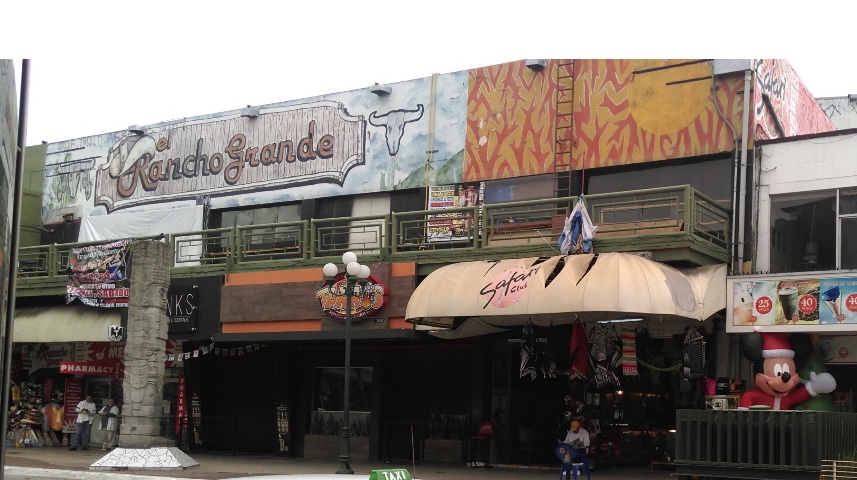

I stop at a restaurant for some tacos. The room is full of single diners. There is solidarity in our solitude. The waiters are two old men who wear Christmas hats, the white parts at the top matted and dirty. They appear to be the only two genuinely happy people in the room. They laugh and joke with each other in between serving tables. The woman beside me stirs her coffee and scrolls mindlessly through her phone. There is a man at the bar drinking. He looks like he is in his mid-forties. He is wearing a big, puffy, dark blue jacket and his face has deep crevices. He has two empty beer bottles beside him and has just ordered another one. He stares down at his hands and fiddles with his wedding band in between chugs of beer. The energy shifts as a group of Japanese tourists come in. They sit at a big table, giddy, and order food and drinks. This takes a long time because both the tourists and the waiters are communicating in second languages. After a lot of hand gesturing and Spanglish, they order chips and salsa and Coronas. Next, they want photos. The waiter takes the photos of the Japanese tourists with their chips and salsa and Coronas.
A group of men in sombreros and charro suits walks around the restaurant and starts playing La Bamba. The waiters, the band and the Japanese family are relentless in their good humor. Human nature’s capacity for momentum can surprise you at times. Suddenly, a wave of joy takes over the restaurant. The man at the bar finally looks up and I catch his eye and smile at him. He is caught off guard and responds with a big, luminous grin.
I leave the restaurant in good spirits and step out onto Avenida Revolución, Tijuana’s main strip that is a collection of bars, restaurants and stores selling Mexican textiles, souvenirs and T-shirts that read “Donald, Eres un Pendejo.” On the sidewalks, worn out men hawk rides on donkeys painted as zebras. Police cars are out in full force, the blue and red lights swirl everywhere, and the stilted hiccup of sirens repeats over and over again because, despite the fact that in a few weeks the New York Times will name Tijuana one of the top 52 places to visit in 2017, the homicide rate is skyrocketing. The author will write about the culinary explosion of Baja Med-style food, the art galleries, the taco food trucks, and the craft beer scene. The author will not mention that if you walk just two blocks in the wrong direction off Avenida Revolución there are people living in the gutter, making homes out of garbage heaps. He will not mention the chopped-up bodies found in suitcases or the nightclub shootings.
To be fair, he doesn’t really have to because in Tijuana the biggest threat tourists face is their own demons. Walk by any pharmacy and see signs advertising Viagra, Prozac, Valium. Behind the signs and counters there is Oxycodone, Fentanyl and Crystal Meth. Every time I walk toward the San Ysidro border crossing, a friendly, pot-bellied, mustachioed man standing outside of a margarita bar pulls me aside and reminds me, “I have everything at my pharmacy, amiga. Everything. Tell your friends.”
The problem with freedom is that it has no boundaries. How far do we go before we completely steer off course? Too much choice means choosing what is easy, what is fun. Suddenly we are no longer in a state of flow but in a pool of stagnant water. I sidestep an American, whom I will come to recognize over the next couple of months. He has long, matted blond hair and wears his signature fluorescent pink and turquoise nineties-style ski jacket. He is nodding out on the sidewalk, his ripped pants exposing legs with open wounds.
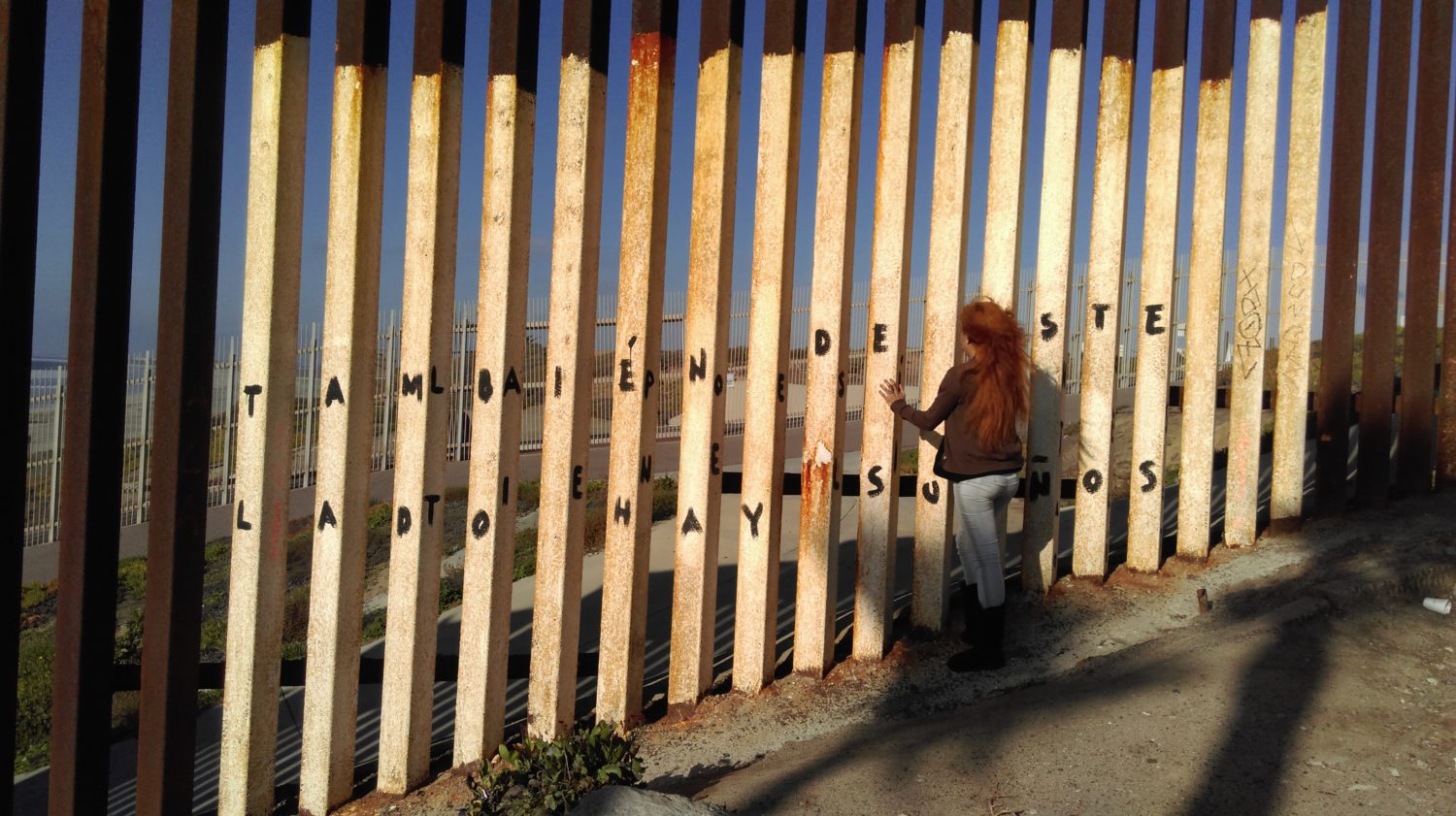

The sun is starting to set and I shiver and quicken my pace. As I wait at a corner to cross the street a minivan pulls up and a group of Haitians spills out of it. They look disoriented and huddle together on the corner as they strategize about where to go. A Mexican man walks by and stops and hugs each and everyone one of them before shaking each hand vigorously and saying Bienvenido hermanos, bienvenido. Feliz Navedad! They have come all the way up from Brazil, where employment and hope have petered out. This is the end of their journey through South and Central America to the border. They have walked for up to three days at a time with no food. Every day their numbers in Tijuana are increasing. There is now a part of town called Little Haiti, where they wait until it is their turn to cross the border. Some are granted refugee status, others are held in a detention center as soon as they cross into the U.S., and then sent back to Haiti. I will become friends with one of them, Ronnie. He is tall and has chispa: impeccable style, a deep voice, and a broad, infectious grin. There are only ghosts left in Haiti, he tells me. We communicate through WhatsApp every day until one day he disappears. The one checkmark for sent beside my last message never turns into two for received and read.
Back in my hotel room I change into sweats, open a can of Tecate and blast the heat. Tomorrow is Christmas Day. In my hometown, Halifax, Nova Scotia, they will be eating turkey and maple-glazed squash, drinking mulled wine in front of roaring fires and beautifully lit pine trees. The phone rings. It’s Gilberto from the reception. My first night in Tijuana he told me the story of how he crossed the border when he was teenager: jumping walls, hiding in the bushes, waiting for the phone call to tell him when to move from one point to the next. It sounded like a video game. When he reached the U.S. side he had to wait in the darkness on the side of the road until morning, when someone came to pick him up and took him straight to the 7-Eleven to get a burger.
“It was the best fucking burger of my life,” he said.
“My first taste of freedom.”
He asks me to come down to the reception, which is empty save for a little fake Christmas tree in the corner. The news on the TV echoes in the silence. Gilberto gives me a chicken tamale wrapped in a banana leaf.
“My sister made these, special for Christmas,” he says.
I thank him and carry the heavy, warm weight of it back up to my room. I sit at the white desk with my Tecate and tamale, which I unwrap, and use the bright green banana leaf as a plate. As I eat I look out the window. There are two men folding up large pieces of cardboard and placing them inside two wide pipes to create makeshift beds stacked on top of one another. I can just see their shadows and the glowing orange ember of the cigarettes hanging out of their mouths. The abandoned building next door, where dozens of people are squatting in rooms with broken windows taped up with garbage bags, must be full. I can hear the wind howling outside. The tamale is delicious.
I decide to volunteer at a shelter helping to serve breakfast. I am in charge of the tortillas. I learn how to unwrap the hot tortillas from their paper and shake them out so that they don’t stick together. Steam escapes as I shake the stacks and then I place them in the canasta and then re-wrap them in a towel to keep the heat in. Each person gets two tortillas. “Don’t give any more than that, no matter what,” another volunteer says to me. But as soon as someone asks, I give him more. The regulars see that I am an easy target and I give more tortillas to everyone who asks after him. Eventually an old, edgy crow of a volunteer speaks harshly to me about it. “If you keep giving extra we will run out.” So now when they ask me I shake my head and say sorry, we are only allowed to give two. I try to perfect saying it cheerfully, but also conveying real regret.
My evening meal at a midrange cafe starts to feel undeserved and pretentious.
The next day the same lady yells at me for placing the tortillas on the plates before the people have sat down. They need to be hot; she shakes her head as she chastises me. All of the other elderly volunteers shake their heads in unison and agree. My cheeks burn as my shame manifests as a flash of anger. Shouldn’t free food be enough? I think.
Despite all of this, the volunteers at the shelter become my friends. I become consumed with my time there. Every morning I walk through the crowds of stranded Haitians and deported Mexicans who line the street waiting to come in for breakfast. I say hello to everyone and then enter, walk into the kitchen and stand over the cauldron, and take in the delicious smell of whatever Alex, the big, burly, tattooed cook is conjuring for everyone. He was deported from California eight months ago and cooks in exchange for a place to live.
Today he has prepared a stew with vegetables, chicken, beans, and rice. Soon more than a thousand hungry people will start coming in: sharply dressed, cool Haitians, addicts who have clearly been up all night, old unemployed men and charming young Latino men with perfect English who have literally just been deported. Alex gives me a taste of the stew before cranking the volume on the music. The song playing is La Vida es un Carnival. All the men in the kitchen nod their heads in time to the beat and sing along. Al mal tiempo buena cara, y todo pasa: In bad weather wear a smile and everything passes.
After a few weeks of volunteering, it’s time for me to leave Tijuana. I feel connected to this motley crew and guilty for leaving, even though I know my presence or absence is inconsequential to them. Valeria, a dynamic lady in her 60s who always wears bright red lipstick, sits next to me at our last meal together. She is excited that I will be going to the region of Mexico where she is from, Jalisco. She tells me she hasn’t been able to go back for eight years. Please, she asks me, when you are there, toast me with a shot of tequila, and make sure you dance in my honor.
I leave and fly to Guadalajara for my next assignment. I decide to take a week-long vacation in Sayulita, a popular beach town on the Pacific coast that has been adopted as a winter home for Canadians seeking sun and surf. I treat myself to a beautiful room in a home owned by a Canadian couple. One night we end up on their rooftop drinking tequila. I sit around a table with two middle aged couples and the owners talk about how they are selling the house soon. Things have changed too much here, they say. They are looking at buying property in Southeast Asia, or maybe a second home in British Colombia. Another round of shots is poured and I silently toast Valeria before I drink mine. We run out of booze and I volunteer to walk to the corner store with one of the men to buy more beer. In the convenience store we are the only foreigners and there is a long line at the cash register. My companion starts talking very loudly, What’s the holdup amigos? Mas rapido! Mas rapido! He booms. There is uncomfortable silence as the young man at the cash register tries to figure something out. I want to disappear from embarrassment. But in reality, how many times have I “good naturedly” complained about the speed with which my latte or glass of wine arrives?
Maybe, I think, the price of freedom is not loneliness. The price of freedom is ignorance.
Soon I am back in Tijuana to work on a story about craft beer. I don’t want to go back to the shelter, to feel the heat of fresh tortillas in my palms, the hugs and kisses from the other volunteers. I don’t want to think about Valeria and her red lipstick, Alex stirring the stew, the old homeless men asking for one more tortilla, nada mas nina. Instead, I stick to my assignment and hang around craft breweries and hip restaurants, talking to handsome men with manicured beards who weekend in San Diego and listen to the Black Keys.
I leave to fly back to Guadalajara and at the airport an earnest young man with café con leche skin and huge caramel colored eyes checks me in.
“Flying to Guadalajara today, ma’am?”
Yes.
“Any baggage to check?”
Yes.
His last question catches me off guard. As he slides my passport back to me over the cool, grey marble counter he asks it.
“Is Canada beautiful? I would like to live there someday.”
I board the plane and look down at my passport in my lap. The dark rich blue and the gold embossed letters: CANADA. I run my fingers over the letters and stare at it until it looks foreign. I imagine seeing it for the first time. To me, nationalism is a sickness, yet I couldn’t help but feel a touch of pride when I answered the young man: Canada is very beautiful. Will he see the glacially fed turquoise lakes of the Rockies or the muddy ocean floor of the Bay of Fundy? This vast, majestic, safe haven that I repeatedly, voluntarily leave behind?
If he does, it will be a testament to his perseverance and will. At the same time, if he doesn’t it will have nothing to do with how badly he wanted it or how hard he tried. It’s a predicament I do not have to face.
Like I said, my freedom was not hard won.
Photos by Jaime Jacques.


